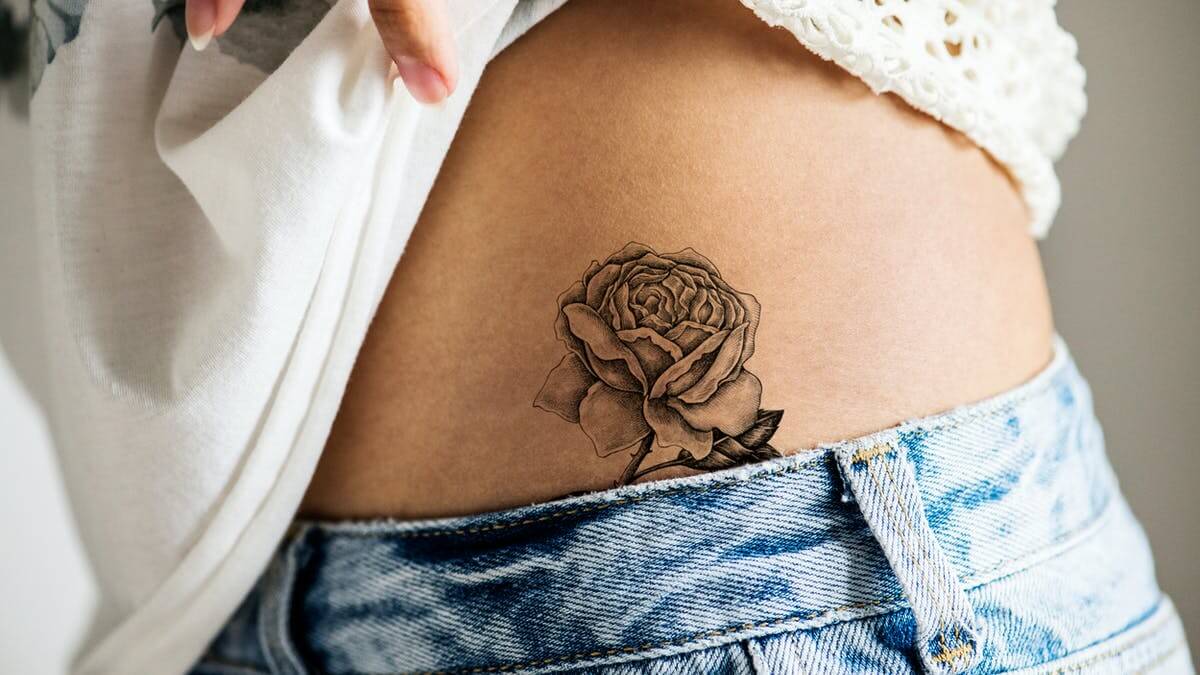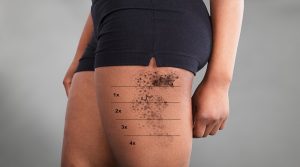Laser hair removal will not affect tattoos. The laser targets the pigment in the hair follicle, so it will not affect the ink in a tattoo. However, if you have a lighter colored tattoo, you may want to avoid getting laser hair removal treatment in that area as the light from the laser can cause the tattoo to fade over time.
Does laser hair removal affect tattoos | HairMD, Pune
Laser hair removal is a popular cosmetic procedure that uses laser light to remove unwanted hair. The procedure is generally considered safe, but there are some potential risks involved. One of the potential risks is that laser hair removal can affect tattoos.
The tattoo pigment can absorb the laser light used in the hair removal process. This can cause the tattoo ink to break down and fade. In some cases, it can also cause burns or blisters.
If you have a tattoo that you want to keep, it’s important to talk to your doctor or dermatologist before getting laser hair removal.
Electrolysis Hair Removal And Tattoos
If you’re looking for a permanent hair removal solution, electrolysis is one of the most popular options available. Here’s everything you need to know about this method, including how it works and what to expect during treatment.
Electrolysis hair removal is a process that uses electrical currents to destroy the growth center of each individual hair follicle.
This process can be used on any area of the body where unwanted hair growth occurs, including the face, chest, back, and legs.
The advantage of electrolysis over other methods of hair removal (such as shaving or waxing) is that it offers permanent results. Once the follicle has been destroyed, it will no longer be able to produce new hair.
This means that you can enjoy long-term hair-free results with just a few sessions of treatment.
However, because each follicle must be treated individually, electrolysis can be a time-consuming process. It may take several sessions (spread out over several weeks or months) to achieve desired results.
But for many people, the permanence of electrolysis makes it worth the investment.
How Long After Laser Hair Removal Can I Get a Tattoo
If you’re considering laser hair removal, you may be wondering if it’s safe to get a tattoo afterwards. The short answer is yes, but there are a few things you should keep in mind.
First of all, it’s important to wait until your skin has completely healed from the laser treatment before getting a tattoo.
This can take up to several weeks, so be patient! Once your skin is fully healed, you can go ahead and book that tattoo appointment.
Just keep in mind that the area of skin that was treated with laser hair removal may be more sensitive than usual.
So, if you have a low pain tolerance, you may want to choose a different spot for your tattoo. Alternatively, talk to your artist about using numbing cream to help reduce any discomfort.
Overall, there’s no need to worry about getting a tattoo after laser hair removal.
Just make sure to give your skin plenty of time to heal first and then find a good spot for your new ink!
Can You Use Ipl Hair Removal on Tattoos
If you’re considering IPL hair removal, you may be wondering if the treatment can be used on tattoos. The short answer is yes, IPL can be used on tattoos, but there are a few things you should know before booking a session.
First of all, it’s important to understand that IPL targets pigment in the skin.
This means that the light will be attracted to the ink in your tattoo, which can make the treatment less effective on other areas of your body.
Second, because IPL targets pigment, it’s possible that the treatment could cause your tattoo to fade over time. If you’re concerned about this, you may want to consider another hair removal method.
Finally, it’s important to note that not all tattoos are created equal. If your tattoo is very colorful or contains multiple colors, it’s possible that only certain colors will respond to the treatment. In general, dark colors such as black and blue tend to absorb more light than lighter colors like white and green.
This means that if your tattoo contains a lot of white space, IPL may not be the best option for you.
If you’re still interested in trying IPL hair removal on your tattoo, we recommend talking to a professional about your options.
Should I Get Laser Hair Removal before a Tattoo
Laser hair removal is a popular treatment to remove unwanted hair from the body. Many people wonder if they should get laser hair removal before getting a tattoo.
There are a few things to consider before making your decision.
First, laser hair removal can help you avoid ingrown hairs and razor burn around the tattoo area. If you are prone to these issues, laser hair removal may be a good option for you.
Second, laser hair removal can help the tattoo heal better.
Tattoos need to be kept clean and dry during the healing process, and having less hair around the area can make this easier.
Finally, you will need to consider the cost of both treatments. Laser hair removal is typically more expensive than getting a tattoo.
However, it is important to keep in mind that laser hair removal is a permanent solution while tattoos can fade over time.
If you are considering getting a tattoo, talk to your artist about whether or not they think laser hair removal is a good idea for you.
Laser Hair Removal And Tattoos Reddit
Laser hair removal and tattoos are two popular body modification procedures that many people consider. Though both procedures use lasers, they are quite different. Here’s a look at how laser hair removal and tattoos work, the benefits and risks of each, and what you can expect during recovery.
Laser hair removal uses concentrated beams of light to penetrate the skin and destroy the hair follicle. The procedure is most effective on dark hair and lighter skin tones. It can be used to remove hair from the face, back, chest, bikini area, legs, and arms.
Tattoos use ink that is injected into the dermis layer of the skin using a needle. The ink is permanent and cannot be removed with a laser. Tattoos can be placed anywhere on the body but are most commonly found on the arms, chest, back, or shoulders.
The benefits of laser hair removal include being able to target specific areas for treatment, minimal pain during the procedure, quick recovery time, and long-lasting results. The risks associated with laser hair removal include burns, scarring, pigmentation changes in the skin, and infection. Tattoos have similar risks but also carry the risk of an allergic reaction to the ink or contracting a bloodborne disease if sterile needles are not used during the tattooing process.
If you’re considering either laser hair removal or getting a tattoo (or both!), it’s important to do your research ahead of time so that you know what to expect from each procedure. Be sure to consult with a professional who can help you make an informed decision about which body modification is right for you!

Credit: www.freshskincanvas.com.au
Will Laser Hair Removal Mess Up a Tattoo?
Laser hair removal will not mess up a tattoo. The laser targets the pigment in the hair follicle, which is why it is effective for hair removal. Tattoos are made up of ink that is placed deeper in the skin than the hair follicle, so the laser will not affect them.
How Do I Protect My Tattoo During Laser Hair Removal?
Laser hair removal is a popular choice for many people looking to get rid of unwanted hair. While the treatment is generally safe, there are some risks involved. One of the most common concerns is how to protect your tattoo during laser hair removal.
Here are a few tips to help you protect your tattoo:
1. Choose a reputable laser clinic: Be sure to do your research and choose a reputable laser clinic with experience performing tattoo removal. This will help ensure that your tattoo is protected during the procedure.
2. Cover your tattoo: Your tattoo should be covered with a sterile dressing or bandage before the procedure begins. This will help protect it from the laser light and heat.
3. Apply sunscreen: Apply sunscreen to the area around your tattoo before the procedure begins.
This will help protect it from the rays of the laser.
4. Keep cool: After the procedure, apply ice to the treated area to help reduce swelling and discomfort. You should also avoid sun exposure and heat for 24 hours after treatment.
What Happens If You Use Ipl Over a Tattoo?
If you have a tattoo, you may be wondering if it’s safe to use IPL treatments. After all, IPL stands for intense pulsed light, and that doesn’t sound too promising for something that’s supposed to go on your skin.
Here’s what you need to know about using IPL over a tattoo:
1. The ink in your tattoo will absorb the light from the IPL treatment. This means that the tattoo will get darker after an IPL treatment.
2. There is a risk of burns with any kind of laser treatment, including IPL.
Be sure to talk to your doctor or dermatologist about this before having any treatments done.
3. The darker your tattoo, the more likely it is that you’ll experience side effects from an IPL treatment. These can include blistering, crusting, and scabbing.
If you have a very dark tattoo, it’s best to avoid IPL altogether.
What Happens to a Tattoo After Laser Removal?
Laser tattoo removal is a popular treatment to remove unwanted ink. However, there are some things to consider before starting laser removal, such as the type of laser being used and the number of treatments needed. There are also potential side effects of laser tattoo removal, which we will discuss in this blog post.
When it comes to laser tattoo removal, there are two types of lasers that can be used: Q-switched lasers and picosecond lasers. Q-switched lasers have been around for longer and are more commonly used in tattoo removal treatments. They work by breaking up the ink pigment into smaller pieces so that the body can naturally remove them.
Picosecond lasers are newer but becoming more popular because they can break up the ink pigment even further and therefore fewer treatments may be needed overall.
The number of treatments needed for complete tattoo removal varies depending on several factors, including the size, location, and color of the tattoo, as well as your skin type and how well you respond to treatment. Most people need between 4-10 sessions spaced 4-6 weeks apart to see complete results.
Side effects from laser tattoo removal are usually mild and temporary. These can include redness, swelling, blistering, crusting, scabbing, or hypopigmentation (lightening of the skin). More serious side effects are rare but could include infection or scarring.
It’s important to follow all aftercare instructions given by your practitioner to help reduce any risk of complications.
Conclusion
Laser hair removal is a popular method for removing unwanted hair, but there is some concern that it may also affect tattoos. Tattoos are created by depositing ink into the skin, and it is possible that the laser energy could break down the ink or cause other damage to the tattoo. However, there have been no reports of any adverse effects from laser hair removal on tattoos and most experts believe that it is safe to proceed with treatment.
If you are concerned about your tattoo, you can always ask your doctor or technician to test a small area before proceeding with full treatment.




